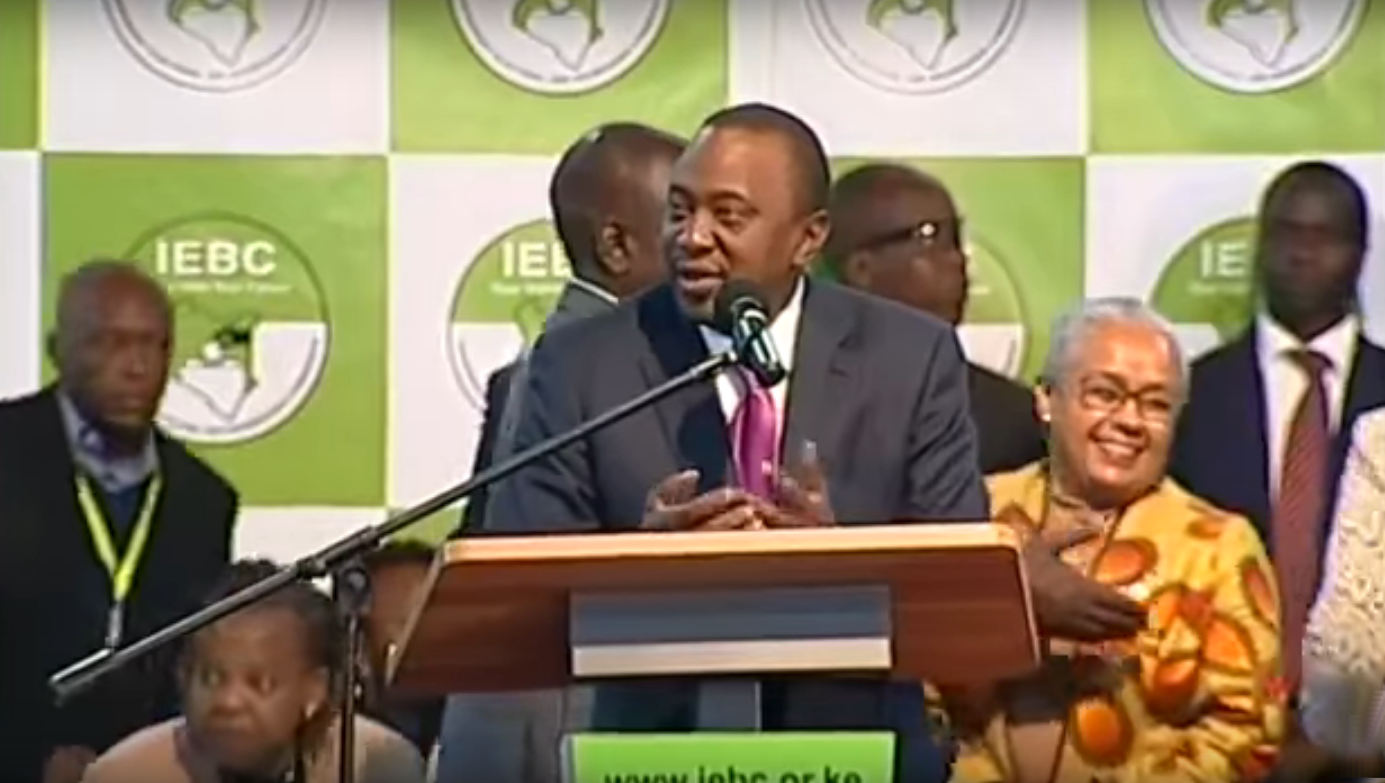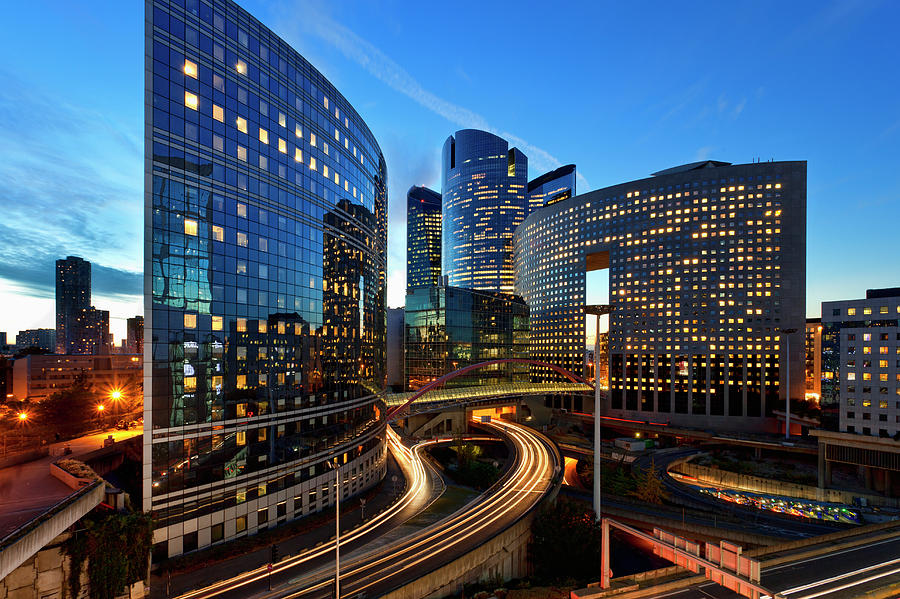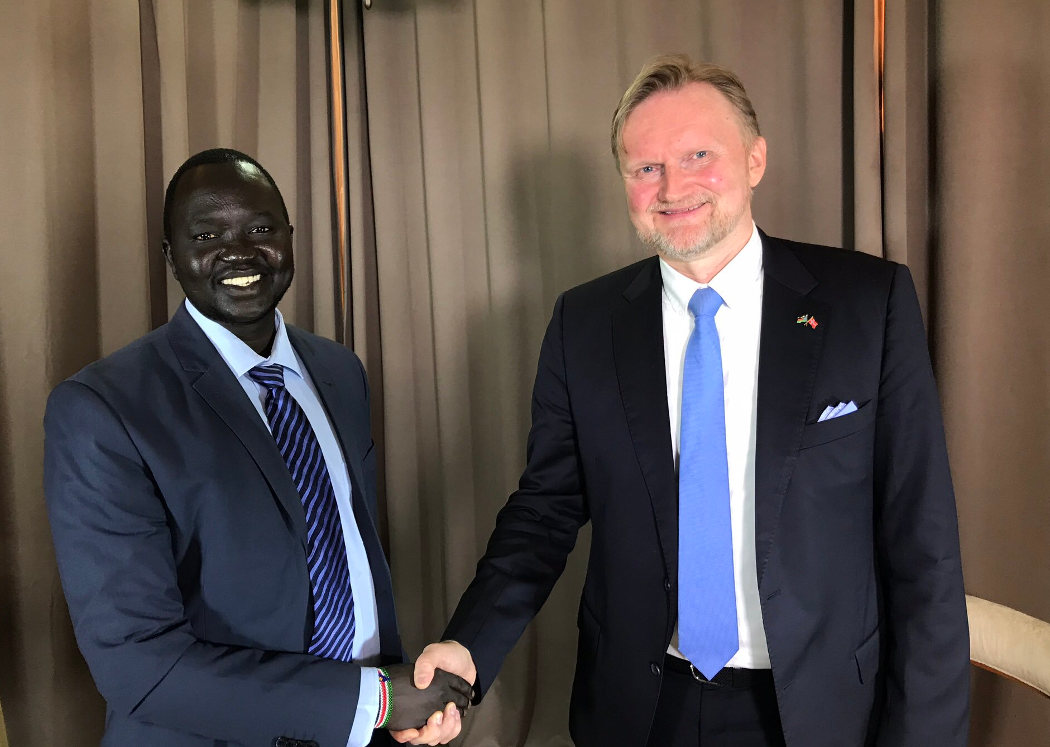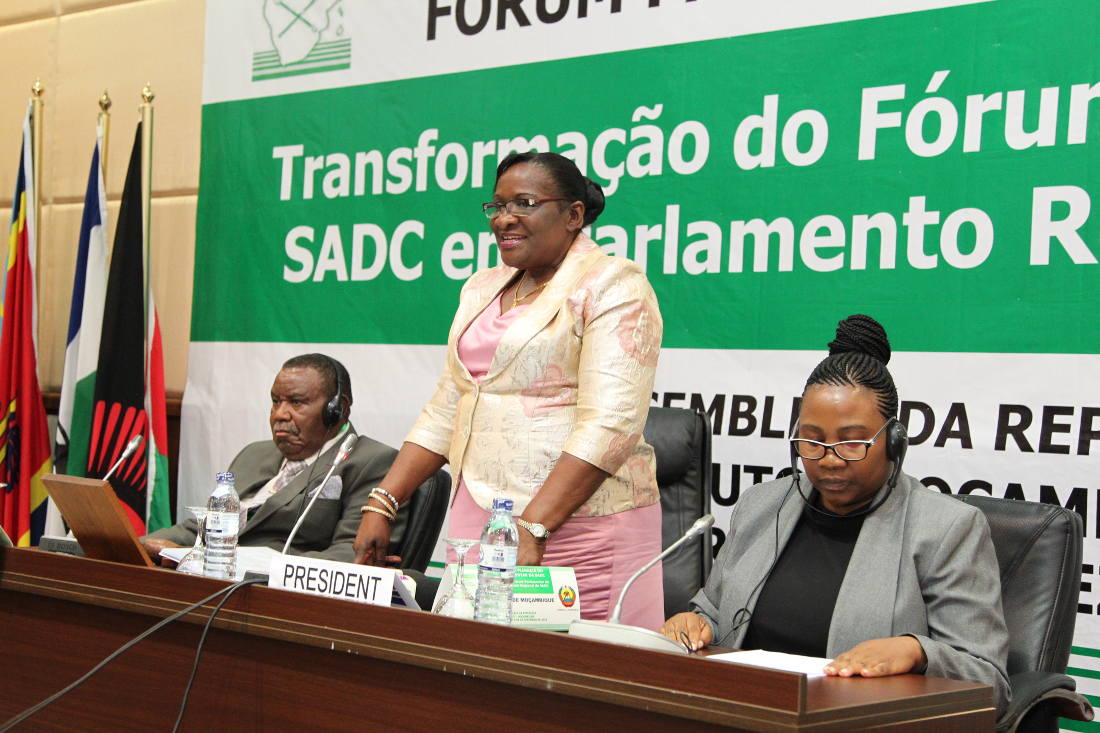Nairobi, Kenya (ViaNews) – The Supreme Court of Kenya has upheld the October 26th election of Uhuru Kenyatta during a determination announced by Chief Justice David Maraga on Monday morning in Nairobi, Kenya.
This development has come at a time when there have been reports over the past one week of unrest in parts of the country with supporters loyal to opposition leader Raila Odinga engaging in running battles with police. Odinga, who was Kenyatta’s main political rival, inexplicably led his supporters in boycotting the elections because he believed that the process would again be flawed.
Announcement by Kenyan Chief Justice David Maraga
Maraga made a cameo 10-minute statement of the determination that quashed the two petitions which contested Kenyatta’s election. The two petitions were filed on November 6th by Haron Mwau (petition number two) and Njonjo Mue (petition number four).On Mwau’s petition; the six-member judge bench looked at the following issues:
- Whether the first respondent was required to conduct fresh nominations prior to the presidential elections held on the 26th October 2017 and what steps were required to be undertaken if at all.
- Were the nominations conducted for the presidential candidates for the elections held on August 8th, 2017 valid after the nullification of those presidential elections by the Supreme Court in its decision delivered on 1st September 2017?
- What is the impact if at all of the divined time frame provided under Article 140 Sub-article 3 of the constitution for the holding of a fresh election on the conduct of nominations and how is this comparable with the other forms of presidential elections contemplated in the constitution.
- What is the effect of a declaration of invalidity of the presidential elections under Article 140 of the constitution? What are the criteria for qualifying candidates to participate in a fresh election?
- Are the first and second respondents guilty of disobedience of the Supreme Court order to conduct the fresh elections strictly in accordance with the constitution and applicable law?
- Whether the first respondent was required to conduct fresh nominations prior to the presidential elections held on the 26th October 2017 and what steps were required to be undertaken if at all.
- Were the nominations conducted for the presidential candidates for the elections held on August 8th, 2017 valid after the nullification of those presidential elections by the Supreme Court in its decision delivered on 1st September 2017?
- What is the impact if at all of the divined time frame provided under Article 140 sub-article 3 of the constitution for the holding of a fresh election on the conduct of nominations and how is this comparable with the other forms of presidential elections contemplated in the constitution?
- What is the effect of a declaration of invalidity of the presidential elections under Article 140 of the constitution? What are the criteria for qualifying candidates to participate in a fresh election?
- Are the first and second respondents guilty of disobedience of the Supreme Court order to conduct the fresh elections strictly in accordance with the constitution and applicable law?
Issues the judges looked at in Mue’s petition
- What is the legal effect of the withdrawal of a presidential candidate before elections? Did any of the presidential candidates validly withdraw from the elections held on 26th October 2017?
- Did the first and second respondents conduct the presidential elections in strict conformity with the constitution and applicable laws? Did the elections conducted on October 26th, 2017 meet the constitutional threshold of a free and fair election under Article 81 of the constitution?
- What are the legal consequences of not holding a presidential election of each constituency under Article 138 of the constitution? Are the results declared there on valid?
- Was the presidential election held on October 26th, 2017 marred with illegalities and irregularities? If yes what were effects of these on the validity of the elections?
“Having carefully considered the above issues, the specific players in each petition as well as the constitution and applicable laws the court has unanimously determined that the petitions are not merited. The final orders pursuant to Article 140 sub article 2 of the constitution as read with Rule 22 of the Supreme Court presidential elections petition rules are as follows.
Petition number two and four as consolidated is hereby dismissed. As a consequence, the presidential election of the 26th October is hereby upheld as is the election of the third respondent,” Maraga said in his closing remarks.
A detailed judgment is set to be issued within 21 days of this determination in conformity with Rule 23 the Supreme Court presidential elections petition rules. According to the Kenyan constitution, Kenyatta should be sworn in as president in seven days.
This ruling brings the curtains down on what has been a heated political scene in the country even as questions remain on what steps the Odinga and his team will take in the coming days.










